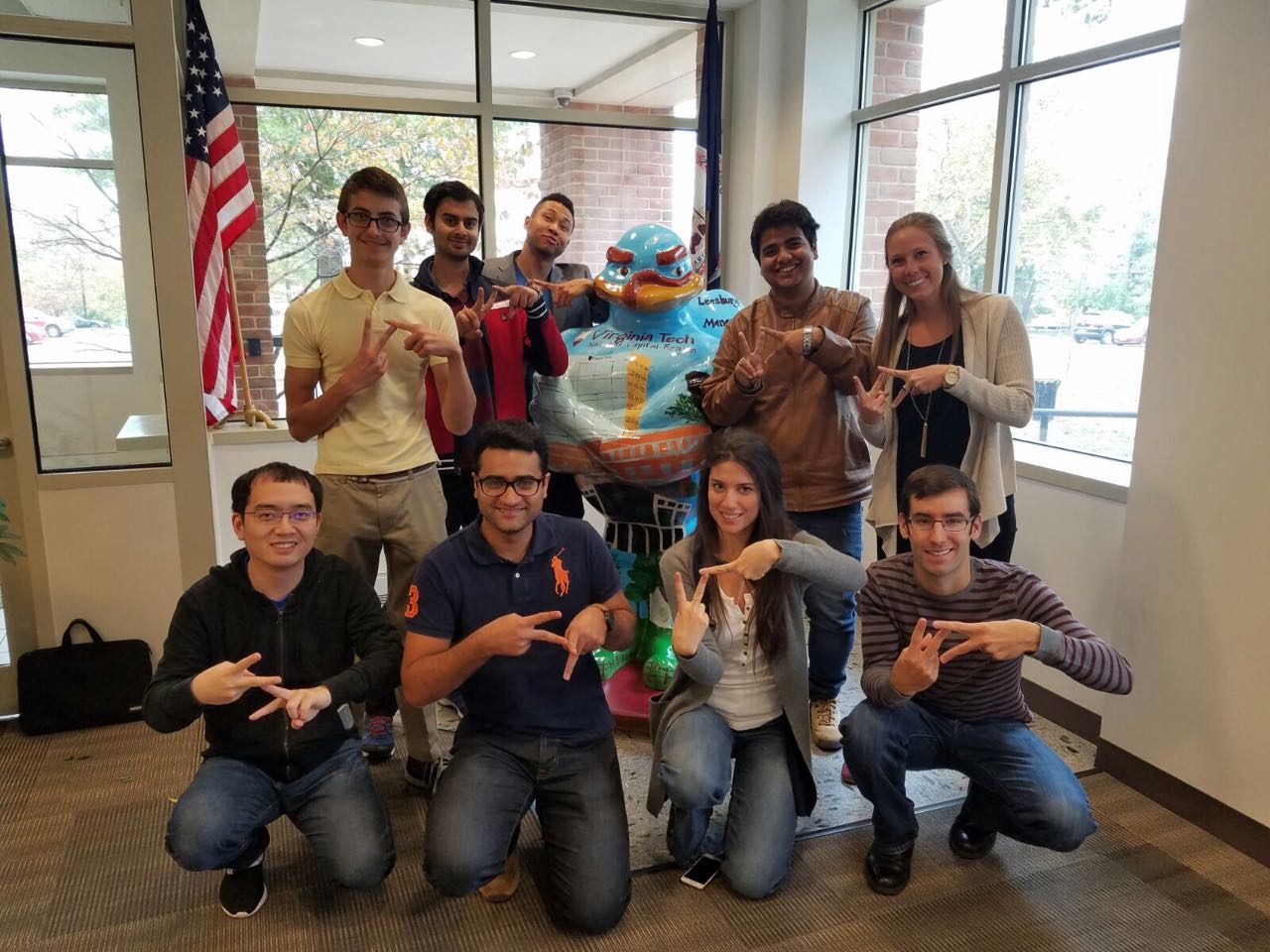About CS @ Washington, D.C., Area

The College of Engineering at Virginia Tech has offered graduate degrees in computer science in the greater Washington D.C. area since 1978 and has been located in the Northern Virginia Center in Falls Church since 1984.
An incubator for teaching and conducting leading-edge research that can be applied to solving critical problems, the Department of Computer Science offers a master’s program with thesis, a master of engineering degree (MEng), and a Ph.D. program. In addition, three specialized certificate programs — Data Analytics, Urban Computing, and Human-Computer Interaction — are available to graduate students in both the master’s and Ph.D. programs.
Students come to Virginia Tech in the greater Washington D.C. area from all over the world to study with faculty who excel in their fields. Our nine computer science faculty have garnered three National Science Foundation CAREER Awards and have secured more than $2 million annually in research funding (e.g., $3.5 million in 2019) from sponsors such as the National Science Foundation, the U.S. Department of Transportation, the Washington Metropolitan Area Transit Authority, the World Wildlife Fund, the U.S. Army Research Laboratory, the Department of Energy, the National Institutes of Health, the National Endowment for the Humanities, and the National Historical Publications and Records Commission.
In preparing students for careers in technology, we extend beyond the classroom to foster a hands-on learning environment. In six wide-ranging labs and a research center located within the department, students work on solutions to real world problems. For example, they study crowdsourcing systems with applications in domains such as national security, journalism, history, biology, and design; develop principles and evaluation methodologies for understanding and building support mechanisms for mobile ad hoc and sensor networks to help achieve anytime, anywhere computing in wireless mobile environments; and convert data to knowledge and human-in-the-loop analytics to arrive at insights in important areas of national interest, including intelligence analysis, sustainability, and public health.
Our geographical location also expands opportunities for collaboration with government agencies, technology companies, and industry leaders. We have partnered with the U.S. Department of Energy, the U.S. Department of Transportation, the Washington Metropolitan Area Transit Authority (WMATA), the World Wildlife Fund, General Dynamics Mission Systems, Criteo, Northrop Grumman, Schneider Electric Buildings Critical Systems, Loudoun County Public Schools, U.S. Army Research Laboratory, Washington Post, American Battlefield Trust, and Library of Congress.
We encourage interdisciplinary collaboration. The department is invested in preparing graduates in computer science that will lead industry into new technological frontiers in cybersecurity, data analytics, machine learning, software engineering, systems, and even the final frontier of space.
The Department of Computer Science is also committed to excellence in diversity and has been a champion of promoting underrepresented populations in STEM for decades. Since 2015 the percentage of women enrolled in our graduate programs in the greater Washington D.C. area has risen from 30 percent to 34 percent and our number of women teaching faculty has risen from 20 to 25 percent.
Our students have many opportunities to showcase their work. In 2019 and 2020, 25 Ph.D. students presented their work at 20 conferences around the world. These include: International Joint Conference on Artificial Intelligence; International Conference on Advances in Social Networks Analysis and Mining; ACM SIGKDD Conference on Knowledge Discovery and Data Mining; International Joint Conference on Natural Language Processing; International Conference on Advances in Geographic Information Systems; AAAI Conference on Artificial Intelligence; AAAI Symposium on Educational Advances in Artificial Intelligence; The Web Conference (WWW); International Conference on Web Search and Data Mining; ACM Conference on Information and Knowledge Management; SIAM International Conference on Data Mining; IEEE International Conference on Big Data; Conference on Innovative Applications of Artificial Intelligence; AAAI Symposium on Educational Advances in Artificial Intelligence; IEEE Secure Development Conference; IEEE International Conference on Computer Communications; International Conference on Distributed Computing Systems; AAAI Conference on Human Computation and Crowdsourcing; ACM Conference on Computer-Supported Cooperative Work and Social Computing; and ACM Conference on Human Factors in Computing Systems (CHI).
During the summer months, students often choose to add to their real-world experience by taking internships in businesses and labs across the country such as Amazon, SAP Concur, NEC Labs, Walmart, Google, SERES, Ellucian, Oak Ridge National Laboratory, Netflix, Microsoft Research AI, and Pacific Northwest Laboratory, Oracle, ByteDance, and Dataminr.
And, when they graduate from our computer science programs, they go on to successful careers in industry, government, and academia. These include NEC Labs America, Samsung Research, eBay, Google, Deloitte, Amazon, Marriott, SOS International, Apple News, Hitachi America, Moody’s Analytics, Microsoft Research, IBM Research, ByteDance, LinkedIn, Raytheon, MITRE, Army Corps of Engineers, Washington University in St. Louis, Purdue University, Michigan State University, University of Hawaii, George Mason University, University of Albany, Mississippi State University, and Stevens Institute of Technology.
The recent announcement of Virginia Tech’s Innovation Campus in Northern Virginia allows our programs to stretch and grow in ways that will make the commonwealth and Virginia Tech a true hub of technology and information on the East Coast.
We have already launched the new master of engineering degree to prepare students with the knowledge and skills needed for mid-level and advanced positions in industries related to computing that will enhance their marketability to employers. Requirements to enter the program are more flexible than those for a traditional research-oriented computer science graduate degree and students can choose to participate in the program on a part-time, full-time, or full-time accelerated basis.


